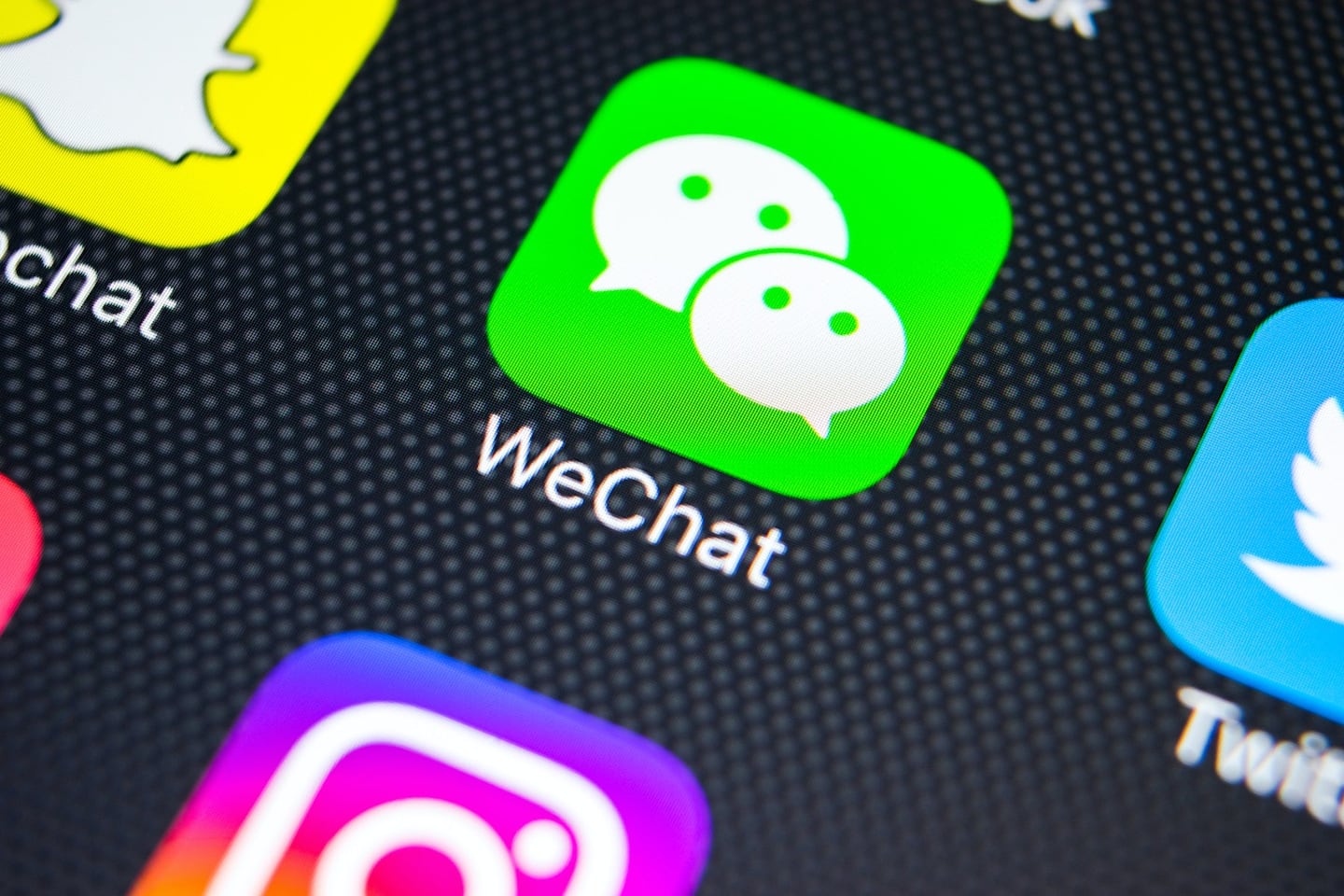
The Business of Fashion
Agenda-setting intelligence, analysis and advice for the global fashion community.

Agenda-setting intelligence, analysis and advice for the global fashion community.

SAN FRANCISCO, United States — A group of WeChat users asked a federal judge to block the Trump administration from imposing a ban on what they say appears to be all uses of the Chinese messaging app in the US over national security concerns.
In a complaint filed Friday in federal court in San Francisco, Chinese-American lawyers who formed the US WeChat Users Alliance claim President Donald Trump’s planned restriction on the app is unconstitutional. His August 6 order bans Americans from carrying out transactions with WeChat and TikTok, another Chinese social-media platform, as of mid-September.
The “vaguely worded” executive order doesn’t define what transactions will be prohibited and leaves individuals and companies at a loss whether they will violate the president’s order if they don’t fundamentally change the way they communicate or run their businesses, according to the lawyers. They linked the president’s order with his comments critical of China in recent months, including blaming it for the coronavirus pandemic.
“Neither the Executive Order itself nor the White House provided concrete evidence to support the contention that using WeChat in the United States compromises national security,” the group said in the complaint. “The Executive Order was, however, issued in the midst of the 2020 election cycle, during a time when President Trump has made numerous anti-Chinese statements that have contributed to and incited racial animus against persons of Chinese descent.”
ADVERTISEMENT
They claim Trump’s order violates WeChat users’ free speech rights as well as their due process rights because it doesn’t provide notice of the specific conduct that is prohibited.
Representatives of the US Justice Department didn’t immediately respond to an email sent after regular business hours seeking comment on the lawsuit.
WeChat, owned by Shenzhen, China-based Tencent Holdings Ltd., is used by millions of Americans and US residents to communicate with people whose first language is Chinese, according to the alliance. Trump’s order would effectively ban WeChat’s use in the US, including anyone exchanging messages with friends, family or businesses in China, the group said.
Trump’s order reflects growing concern by American authorities that Chinese businesses pose a grave security risk, a claim that has escalated tensions between the two countries and sparked denials from Beijing. Trump also ordered TikTok’s Chinese owner, ByteDance Ltd., on August 14 to sell its US assets, with potential buyers Microsoft Corp. and Oracle Corp. showing interest.
The president has wide powers under a 1977 law that allows him to declare a national emergency in response to an “unusual and extraordinary threat,” including blocking transactions and seizing assets.
US companies with operations in China have expressed concern about the WeChat ban because the app is an integral tool for business in the country. Chinese consumers use it for all sorts of transactions, from buying coffee to airline tickets.
The Trump administration is privately seeking to reassure US companies including Apple Inc. that they can still do business with the WeChat messaging app in China, according to several people familiar with the matter,
The case is US WeChat Users Alliance v. Trump, 20-cv-05910, US District Court, Northern District of California (San Francisco).
By Edvard Pettersson
Brands are using them for design tasks, in their marketing, on their e-commerce sites and in augmented-reality experiences such as virtual try-on, with more applications still emerging.
Brands including LVMH’s Fred, TAG Heuer and Prada, whose lab-grown diamond supplier Snow speaks for the first time, have all unveiled products with man-made stones as they look to technology for new creative possibilities.
Social networks are being blamed for the worrying decline in young people’s mental health. Brands may not think about the matter much, but they’re part of the content stream that keeps them hooked.
After the bag initially proved popular with Gen-Z consumers, the brand used a mix of hard numbers and qualitative data – including “shopalongs” with young customers – to make the most of its accessory’s viral moment.